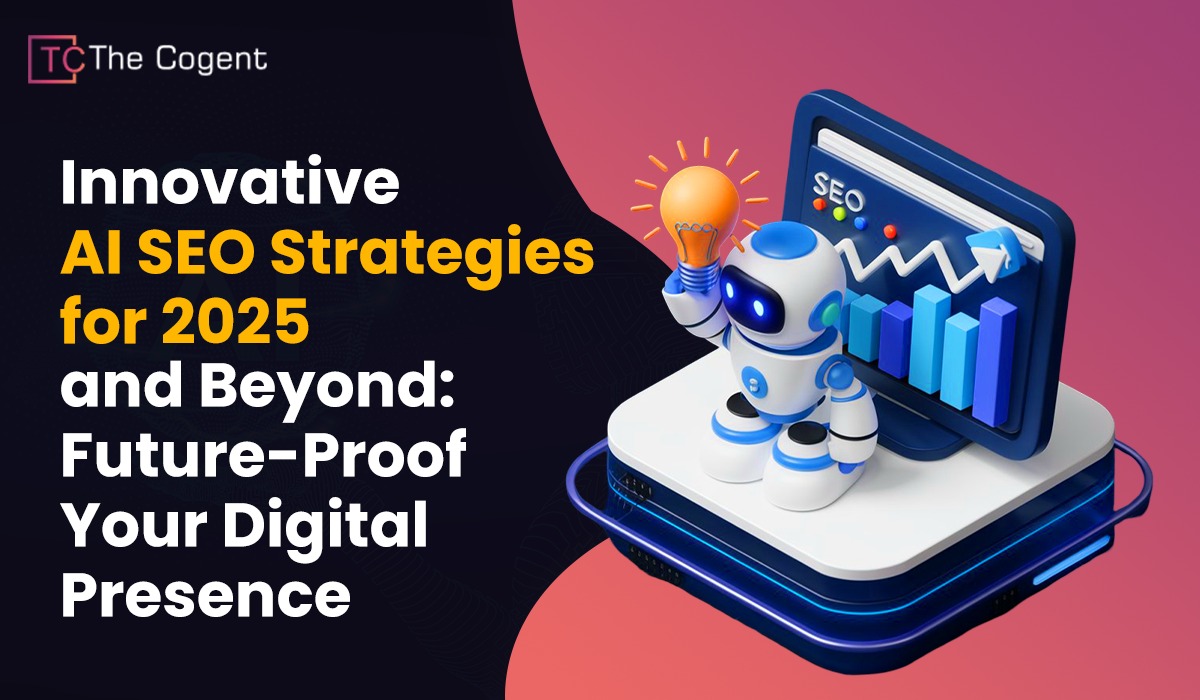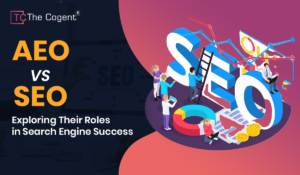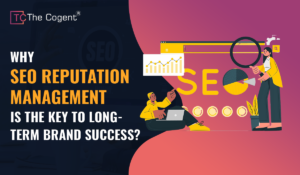1. Introduction: The Changing Landscape of SEO in 2025
SEO is evolving faster than ever with new technologies. The artificial intelligence, machine learning, pave their path to search engines and optimise the SEO. In 2025, what worked before for SEO strategies only guarantee neither exposure or ranking. AI is changing the way we are building, optimizing, and personalizing content. This is ensured by using a more creative and, most importantly, a more data-driven format.
Search engines are getting smarter so your strategy needs to get smarter. In this blog, we will explore the most intelligent and AI-based SEO adoption that will propel the future. Then will explore how companies can embrace intelligent thinking. Nevertheless, this will be needed to stay relevant and competitive. Get ready to future-proof your digital existence as we move into an AI-first search universe.
2. The Role of Generative AI in Shaping Future SEO
Generative AI is changing the SEO landscape by allowing for smarter, faster and more custom content production. With generative AI tools such as ChatGPT and Gemini, it’s now possible to generate articles, meta descriptions, and frequently asked questions. Moreover, the responses can be scaled with keywords while maintaining significant relevance and coherence.
Generative AI is also beneficial when looking into search intent, user experience and upcoming trends. Hence, it allows marketers to create content compatible with what users were actually searching for. Nowadays, search engines steadily move closer to prioritizing context and quality. At the same time, generative AI allows you to keep your content optimized, engaging and ahead of where algorithms are headed.
3. Predictive Search Optimization: Anticipating User Intent
Through predictive search optimization, organizations can utilize AI and big data to predict user intent at an even faster pace than the query is typed. This is made possible through an analytics process, where user behavior, location, device, and past behavior patterns are analyzed.
As a result, SEO strategies can identify what the users will search for next. In addition, organizations can now produce content that won’t just meet the user’s future intention, but identify anticipatory intent which will support future demand. As a result of voice search and AI assistants, anticipating user intent will be required to rank higher and deliver hyper-relevant real-time content experiences.
4. Conversational and Voice Search: Optimizing for Natural Language
With the increase in voice assistants and conversational AI, optimizing for natural language is becoming an important element of SEO. Users are now using full sentences or questions to search instead of keywords. This means that content must be structured to reflect how people speak. SEO strategies should now look to focus on long-tail keywords, question-based searches, and natural phrasing.
Structured data and featured snippets can also help attract voice search traffic. By aligning your content with how people naturally speak, brands will be in a better position for visibility across smart devices and voice-based platforms.
5. AI-Powered Content Clustering and Topic Authority
AI-driven content clustering organizes web pages into themes that enhance topical relevance and improve SEO. AI tools analyze keyword relationships and search intent to automatically generate pillar pages and supporting content. This adds to your site’s structural strength and that builds topic authority. It signals to search engines that your website is a credible source of information about a specific subject.
The combination of all these serves to build a path towards higher rankings, improved internal linking, and better overall user experience. AI-supported clustering is essential to becoming dominant in competitive search landscapes in 2025 and beyond.
6. Hyper-Personalization with AI and Search Behavior Analysis
Hyper-personalization through search engine optimization uses AI to gain an understanding of user’s search interactions, preferences, and patterns of behaviour to develop customized content experiences. By taking into account user journeys, types of devices that are being used, and what the users are engaging with, AI is able to recommend content, products, or services that are very relevant, in real time.
This level of specificity helps increases click through rates, reduces bounce rates, and ultimately, improves user experience. Algorithms are that search engines are beginning to prioritize personalized search results. So incorporating behaviour analysis from AI into your SEO strategy will ensure you are building stronger connections to your audience. This ensures that you are able to remain visible as competition increases in the digital space.
7. Visual and Multimodal Search: Preparing for Next-Gen SERPs
Visual and multimodal search is changing the way search engine users behave. Google Lens and Pinterest Lens let users search using images. This is a concrete evidence that SEO needs to optimize using visuals, not just text. AI-driven SEO must connect the content to the images, including using alt text, using structured data, and creating images that are high-quality. Multimodal search gives users the option of text + image + voice input.
To succeed in multimodal search, marketers and SEO practitioners need to adjust their content and SEO strategies. With new SERPs coming online it is vital to adapt to new formats, so your content is discoverable and ‘searchable’ in the continuously evolving search ecosystem.
8. Ethical Considerations in AI-Driven SEO
AI will be central to SEO, so we need to be aware of the ethical issues. Authenticity, misinformation, data privacy, and algorithmic bias all need to be considered. AI and over-automation can inhibit human creativity and trust. However, ethical AI-driven SEO will emphasize transparency, fairness, and a user-centered content strategy.
Brands must balance innovation with responsibility, and consider how AI tools can enhance, not exploit, the digital experience. As the pace of change accelerates, brands will have to pay close attention to changing regulations and public expectations.
9. Implementing Innovative AI SEO Strategies: A Roadmap for 2025
In 2025, if you want to apply AI SEO trends that are cutting-edge, start incorporating tools that use AI into your workflow for keyword research, content generation, and user behavior analysis. You can use predictive analytics to predict trends based on user intent as well as use content clustering to build electroconvulsive topical authority.
Continue to optimize for voice and visual search by ensuring content embraces natural language and incorporates more multimedia content. Prioritize hyper-personalization to increase user engagement. Moreover, be ethically responsible while considering AI by being transparent with AI use, and being ethical with data privacy issues. A strategy that embraces AI solves your digital presence future-proofing challenges quickly and effectively.
Conclusion: Staying Ahead in the Evolving AI-SEO Era
The changing face of SEO and the influence of artificial intelligence on this evolution are clothing businesses to proactively navigate. We’ll need to be agile and strategic in our approach to pervasive AI, and will need to leverage artificial intelligence methods like content clustering, predictive optimization, and hyper-personalization one in order to align with user intent and to maximize engagement.
As search engines adopt a more refined view towards relevance and context, we will also need to factor in emerging technologies, voice search, and visual search. In everything we do that includes AI, I would also encourage an ethical approach, aiming for ethical AI development including algorithms that are transparent and trustworthy. By changing our mindset and actively embracing artificial intelligence, businesses will remain ahead of the competition in an ever-changing world.
FAQs
Generative content, predictive search, voice, and visual optimization, hyper-personalization, and AI-powered clustering mark a fundamental shift in search engine optimization (SEO) and will make SEO more intelligent and focused on intent and relevance with a level of personalization never before seen.
By concentrating on natural language content, long-tail keywords, structured data, and contextual signals based on user behaviors to anticipate and answer queries for voice assistants and smart devices, the SEO landscape will rapidly advance.
Of course, keyword research, on-page optimization, citations / backlinks, and technical SEO remain important practices, but they must keep pace with developing AI for them to be useful and offer competitive advantages.
It is perfectly safe to use AI-generated content if it is useful, relevant, and unique. Using spam-like automated low-quality content is prohibited. Google will reward helpful and useful content regardless of the method of composition or generation used to produce the content.
Start by using AI to do content planning, gain keyword insights, conduct competitor analysis, etc. Over time, include the best practices of voice optimization, predictive analytics, and clustering, which will give your SEO practice a future-proof scalable foundation.



